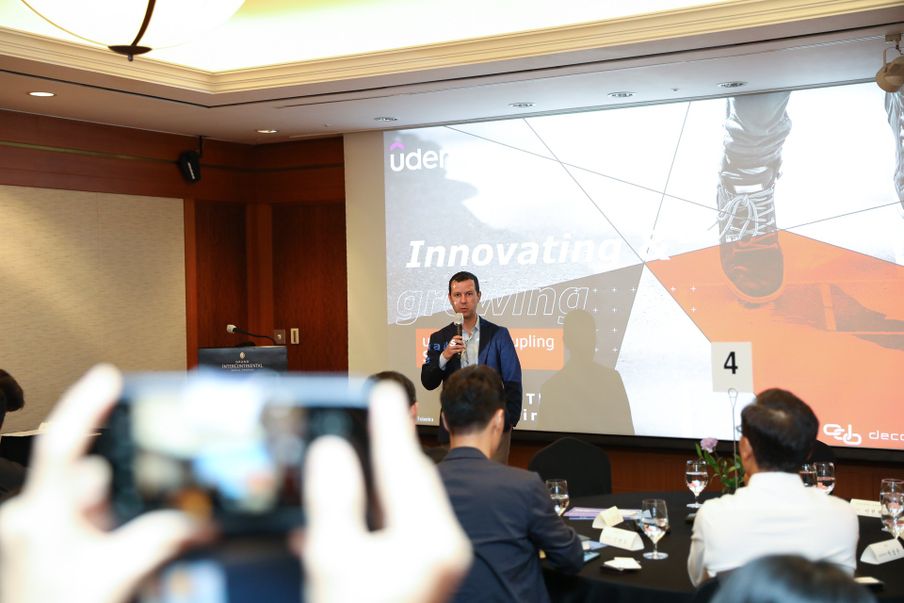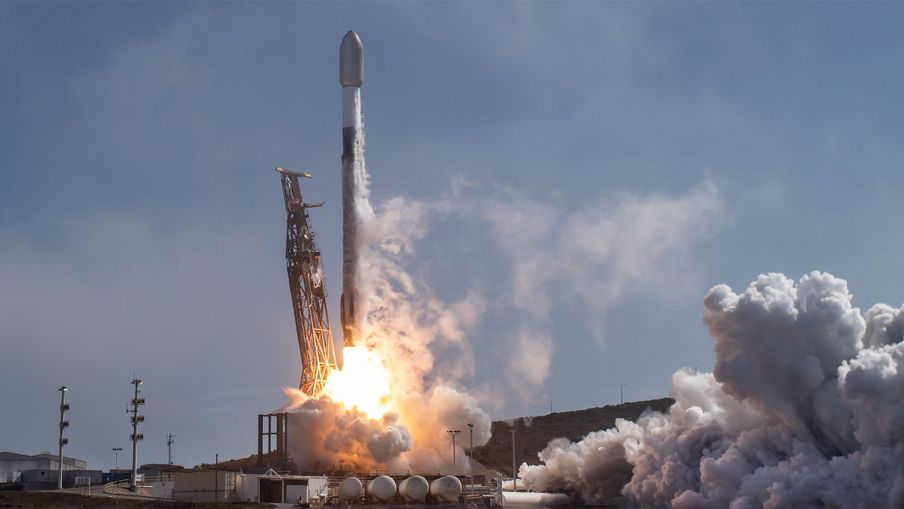"Korean fast-following strategies will obsolete in GenAI era"

[The Wave] Thales Teixeira, Author of "Decoupling"
How Should Korean Companies Respond in the AI Era? "Executives Must Use AI to Identify Urgent Priorities"
The business landscape is undergoing significant changes in the era of AI. Korean companies need to respond differently. If AI is only used as a means to cut costs, they will ultimately face survival challenges.Professor Thales Teixeira of UC San Diego
In an exclusive interview with The Miilk, renowned global strategic marketing expert and bestselling author of "Decoupling," Professor Thales Teixeira of UC San Diego emphasized the pressing need for Korean conglomerates to adapt swiftly and strategically in the burgeoning era of artificial intelligence (AI).
Having served as a professor at Harvard Business School, Professor Teixeira shared his insights on how Korean giants like Samsung Electronics, Naver, and Kakao are navigating the AI landscape. "For the past 25 years, Korean companies have achieved rapid success by identifying and addressing issues while mitigating risks," he stated. "However, the formula for future success must change."
Professor Teixeira pointed out that Samsung Electronics, for instance, has excelled by keenly observing smartphone market changes and creating its own niches through a strategy of imitation, adaptation, and innovation in various sectors including electronics, transportation, and e-commerce. "While this approach has fueled growth in the past, it will be increasingly challenging to succeed by merely adapting global trends for the Korean market," he noted.
Historically, Korea has thrived as a "fast follower" in industrial technology, rapidly implementing successful global models domestically. However, he cautioned that the AI revolution, characterized by real-time translation erasing language barriers and diminishing innovation time lags, necessitates a strategic overhaul. With Korea’s population declining and its market contracting, the strategy of quickly localizing global success models for Korean consumers is losing its effectiveness.
He warned that the rapid advancement of technology and a lack of market regulation present significant challenges for Korean companies, particularly those in the information service industry like Naver and Kakao. "The importance of strategic decision-making on where to integrate AI tools is paramount," he stressed. "Introducing AI solely for cost-cutting purposes may lead to missed opportunities in new business ventures, enhanced customer satisfaction, and the development of innovative business lines."
Professor Teixeira predicted that true success will come to companies that demonstrate high-value creativity in innovating new business models. "The companies that will thrive are those that leverage AI not just for efficiency, but to create novel offerings and improve customer experiences," he asserted.
Dr. Teixeira will serve as a keynote speaker at "The Wave," an event to be held at COEX (Conference Room 401) on June 19th and 20th, where he will delve deeper into these themes. The following are excerpts from our interview with Professor Teixeira.

"Decoupling: The Third Wave of Digital Transformation...Finding Business Models in the Customer Value Chain"
What is the Concept of 'Decoupling'?
"Decoupling is literally a strategy of dismantling, separating, and breaking away. It involves identifying and severing the weakest link between the different stages of a customer's consumption activities—such as product search, evaluation, purchase, and use—then dominating that specific point. As a marketing professor, I have always focused on the customer. I felt the need to explain the customer value chain. For instance, if a customer wants to buy a flat-screen TV, they first recognize the need, then search for available options. They compare these options on various dimensions, check prices, choose one, purchase and pay for it, bring it home or receive it via e-commerce, use it, and finally dispose of it when done. All these activities form part of the customer's value chain. The focus of our thinking should be on the customer, not the company or the technology.
Decoupling can be seen as the third wave of digital disruptive innovation. The first was unbundling in the 1990s, the second was disintermediation in the 2000s, and the third wave is decoupling. Typically, startups analyze the customer value chain, identify activities where customers are dissatisfied, and create businesses that perform that single activity better than existing companies."
You argued in your book that cutting-edge technology is not always necessary to be a game-changer. Is this still valid?
"Absolutely. Innovative technology does not necessarily have to be a priority. At Harvard Business School, I studied over 30 cases and visited numerous startups. For example, when I visited Facebook in its early days before the IPO, they did not have disruptive technology. The same goes for Airbnb and Uber.
What set these companies apart was not their technology but their ability to identify weak links in the customer value chain. They pinpointed activities where customers were not fully satisfied and developed solutions. They built their business models around a thorough understanding of the weaknesses in the customer value chain. In fact, the majority of successful startups did not have disruptive technology. There are exceptions, of course, such as Tesla's electric cars and autonomous driving technology, and Apple's iPhone."

"ChatGPT Lowers Adoption Barriers, Increases Impact... Variability Expected Among Users"
What are your thoughts on the recent evolution of multimodal generative AI by OpenAI and Google?
"I am watching it with great interest. For years, Google has focused its investment and attention on AI, with hundreds of engineers dedicated to machine learning and AI. Then suddenly, OpenAI's ChatGPT emerged. It has become one of the fastest-growing technologies to date.
The first reason for its rapid growth is that it was cheap or free. It was also easy to access and simple to use. Despite the longstanding dominance of a company like Google, OpenAI managed to capture the market by minimizing the barriers to adoption. Users only needed to go online to access it. As mentioned earlier, the best technology doesn't necessarily succeed; the most widely accessible technology does.
Another reason for ChatGPT's success is its nature as a general-purpose technology. While most technologies are limited to specific use cases, ChatGPT can be used for a wide range of applications. We are all learning how to use this technology in various ways."
What changes are companies facing, and what preparations should Korean companies make for the AI era?
"While many people want to believe that everyone will benefit from these technologies, some will use them to build empires, while others will simply use them as toys. Historically, this has been the case in agriculture, the internet, and computing. The most powerful technologies create significant differences and variability depending on who uses them.
It is expected that generative AI will be no different. Some companies will use it to become very powerful and valuable, while others will only make incremental improvements to their activities. They may use this technology to slightly enhance operations or marketing, reduce costs, and improve advertising. And some will try to avoid it altogether.
There is already attention on cases where some companies are using this technology to replace knowledge workers. The key difference between generative AI and previous versions of AI is that generative AI allows for an extension of creativity. It can be used to generate articles, write documents, create presentations, and even improve the quality of work done by professors."

The challenges for Korean companies in the AI era? "Identifying Management's Top Priorities"
You have many discussions with Korean companies and the government. What did you feel from your conversations with these people in the AI era?
"In fact, I'm here in Seoul partly due to invitations from several companies. Every company has its challenges, and the larger the company, the more challenges it tends to face. Personally, the biggest challenge I've identified is understanding what the top priorities are for senior management today.
Think about CEOs of major conglomerates like Samsung or LG. They come to work and have to allocate their time very strategically. They need to prioritize setting budgets for each department and even within each business unit. Each department needs to decide its own operational priorities and where to allocate budgets.
However, there's currently no management tool that helps senior executives understand what the top priority issues are. So, leveraging AI to provide meaningful data is helping senior management understand where to allocate priorities. There's a significant opportunity here. Given the preciousness of senior management's time, understanding what the first issue to tackle is crucial.
In discussions with companies, it's often apparent that they may be overly focused on one particular issue, which may not necessarily be the most critical issue. AI is used to extract and analyze relevant data, helping to realize this and focus on the real pressing issues. It's not just about solving problems but also about identifying significant issues consistently and improving them through a customer-centric approach, or else it could lead to significant problems."
As a speaker at The Wave Conference on June 19th, what message do you plan to deliver?
"My first point is understanding what's happening in the current business landscape. Much of it revolves around generative AI, and I plan to introduce several successful use cases of generative AI across various industries.
Secondly, the message will focus on the 'customer-centric mindset.' Many companies claim to be customer-centric, but when you look at how products are actually developed, that's often not the case. It's because they have an engineering mindset.
The third topic is broadly considering the impact of these changes on the global market. The market is increasingly globalized. While the Korean economy is doing well domestically, it's lagging behind in the global economy. So now Korean companies need to move beyond the Korean market. What worked domestically often doesn't translate directly to other markets, and some markets have reached saturation points.
Korean companies need to identify new growth opportunities outside of Korea. Like Japan, Korea is facing significant opportunities for expansion abroad. I'm excited to discuss these opportunities and challenges with many of Korea's senior executives and leaders at The Wave Conference."

The Wave Seoul 2024
Date: June 19th (Wednesday) to June 20th (Thursday), 2 days
Time: June 19th (Wednesday) 10:00 AM to 5:00 PM / June 20th (Thursday) 10:00 AM to 5:10 PM (Registration: 9:30 AM to 10:00 AM)
Location: COEX Seoul, Conference Room 401
Theme: Next Billion
Language: English / Korean









